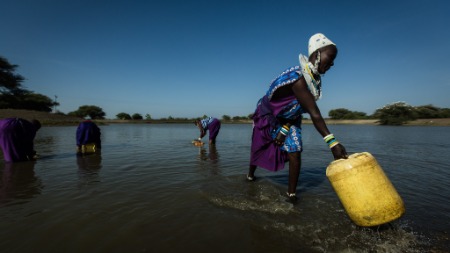Interviews - November 1, 2021
November's Expert of the Month: Dr. Giuseppe Roccasalva!


Written by Jamie Wylie 5 min read
At the Solar Impulse Foundation, our strength lies in the incredible talents and initiatives of our network - be that innovators behind our Labeled Solutions, the investors supporting the growth of the Solutions or those seeking to implement Solutions. Another group at the core of the Foundation however is our Expert Community, who play a vital role in assessing solutions seeking the Efficient Solution Label. Our Experts use their knowledge and expertise from the world of business, science and industry to ensure our Solutions meet a strict standard on sustainability and profitability.
Each month, we recognise one of our 360-strong Expert Community who has really impressed in their role. This month, we are delighted to announce that the Expert of the Month for November is Dr. Giuseppe Roccasalva! Giuseppe began volunteering his expertise with the Foundation for over two years ago and has assessed over 30 solutions seeking the Efficient Solution Label. A huge thank you to Giuseppe for his fantastic work!
Read on to hear more about Giuseppe's expertise and experiences in architecture, mobility and more!
Please tell us a little about yourself!
Giuseppe: I live in Turin, first capital of Italy, the former 'one company town' and among the largest metropolitan cities of Italy. I have been studying at Polytechnic of Turin (Architecture), CTH of Gothenburg (Urban Design) and KTH of Stockholm (Environmental spatial planning) and collaborating with some other Research Institutions around the world (Cairo).
Please tell us more about your area of expertise and profession?
For the past 18 years I have been A Senior Research Advisor at Polytechnic of Turin, working with Public Authorities and Companies for developing projects and sustainable transitional plan and policies. My work focus on multi-criteria analyses for sustainable processes and design, assisting decision-makers, professional practitioners and communities to develop their choices consistently.
Your PhD focused on architecture and urban design. Could you tell us about what your research focused on and what the key learnings were in a sustainability context?
I developed my first thesis on Design Decision Support Systems, then a Masters and PhD dissertations on tools and methods for analyzing complexity in order to draw from data different sustainable paths, exploiting technologies and defining adaptation/mitigation strategies for cities and territories. In this field I experienced the different threats, opportunities and aptness of public and private stakeholder at all scales, dealing with topics such as the climate transition, ecological design and circular strategies. There are no single solutions and the work of all experts has to be ready for lifelong changes and continuous improvements and learning.
What are the most exciting trends you see to create sustainable urban environments? What new solutions are needed for this transition?
Strategies for circular economy must be intensively developed in the next future and become even mandatory in different fields (industrial production), in specific area (big metropolitan area, third world) and in our work. There are at present too many assessment methods and datasets for attempting to understand the consequences of our planned choices on someone else's decisions in the world. Most of the limitations of our assessment do not take into account that impacts are never limited to a constrained boundary and they are never irrelevant; we must challenge our thinking that all actions will consume energies or materials which might not be substitutable in time. In this regard, I hope to see some changes in the coming years thanks to diffuse awareness campaigns.
Many cities are now embracing the concepts of sustainable urban mobility and planning. Are there any examples of cities that stand out as leading the way on this?
I have seen cities that design successfully implement long-term mobility visions (Copenhagen and Melbourne for example) and others that have tried to reach efficient results in a shorter time (Dubai and other Middle Eastern cases). I believe that mobility can drastically change in the next 10 years, however there is much we can do immediately, starting from those territories and big towns which haven't systematically decided about shared mobility as a service, micro- and e-mobility, and logistics, and more effective/efficient economic strategies for the backbones of their public transportation.
You’ve been an Expert for over two years now, assessing over 30 Solutions! What kinds of Solutions have you assessed, and which stand out as the most impactful?
I have been assessing mainly Solutions under the SDG 11 (sustainable cities and communities) and some other dealing with energy efficiency (SDG7).
The most impactful are those Solutions which have a clear scaling strategy and which are not only keen in selling a sustainable and innovative product but whose company is also providing a side service (implementation of the product, customization, different purchasing or production systems and so on). My belief is that the Solutions should become systemic by focusing on the long-term of how they can operate in a site-specific world.
What are your hopes for the Labeled Solutions, and the Solar Impulse Foundation more widely?
I hope that Solution that reach environmental and economic success will inspire new Solutions in order to keep going with improvements and innovation together, with the genuine interest and efforts offered by all the community of Experts. I am sure that the advocacy plan about the Labeled Solution will soon give results, especially with the adoption by public institutions.
To find out more about becoming an Expert, see here.

Written by Jamie Wylie on November 1, 2021


